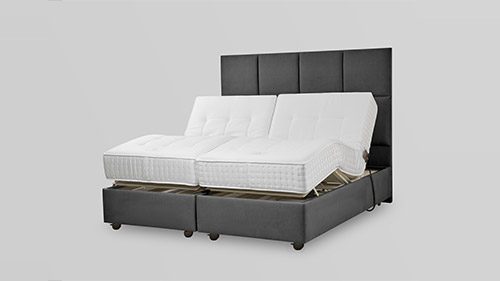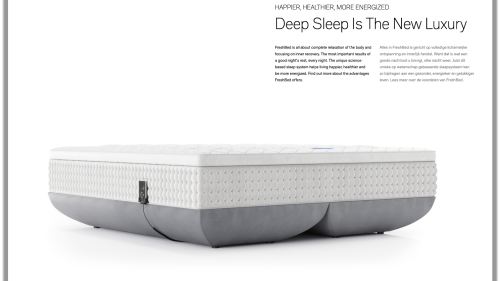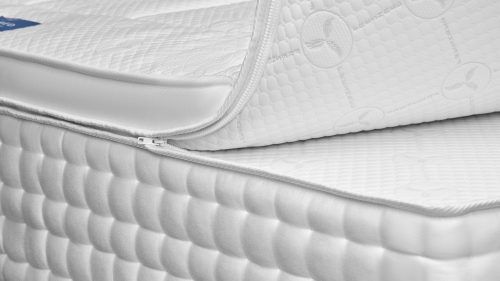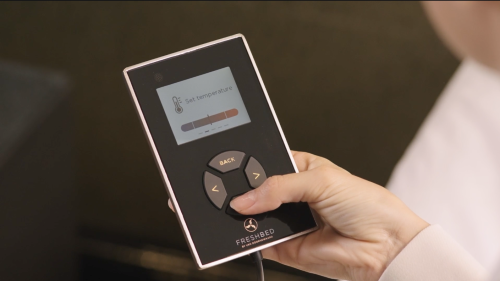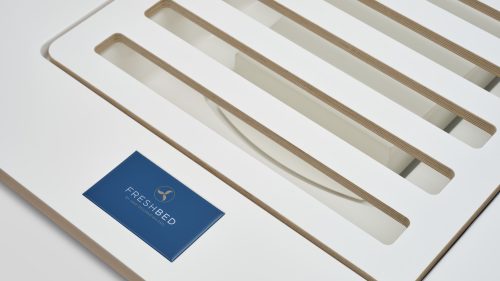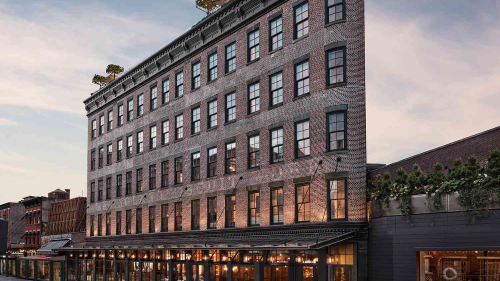Everyone wants to sleep well. Yet more and more people experience restless nights, difficulty falling asleep, or waking up for no clear reason. Often we think stress is the only culprit, but the reality is more complex.
There are several factors that disrupt your sleep, sometimes without you realizing it. Below you’ll find the biggest disruptors and what you can do about them.
1. Stress and Mental Restlessness
Stress remains the biggest cause of sleep problems. A busy mind, worries, or a constant feeling of being ‘on’ make it hard to relax. You lie awake thinking or wake up in the middle of the night with racing thoughts.
What helps:
A fixed evening routine helps your brain switch from action to rest. Put away screens on time, take a warm shower, or write down your thoughts. Breathing exercises or reading a book are good ways to ease the transition to sleep.
2. Temperature in Bed
What many people don’t know: temperature is the biggest sleep disruptor after stress, according to research. During sleep, the temperature under the duvet often rises much higher than is good for your body. This disrupts your sleep rhythm, especially the deep sleep phase.
For most people, the ideal temperature under the duvet is between 27 and 29 degrees Celsius. Traditional beds tend to trap heat, which can cause sweating, tossing and turning, or even waking up without realizing why.
What helps:
A stable and comfortable sleep climate makes a big difference. Under the right conditions, your deep sleep can improve by up to 50 percent.
FreshBed addresses this by actively regulating the bed’s temperature and humidity. This way, one of the biggest disruptors of your sleep is structurally tackled without you having to do anything.
3. Light (Especially from Screens)
Light affects your biological clock more than you think. Especially blue light from phones, tablets, and laptops suppresses the production of melatonin, the hormone that makes you sleepy.
What helps:
Put your phone away at least an hour before bedtime. Dim the lights in your home and make your bedroom as dark as possible. You can also use a night lamp with warm, reddish light that disrupts your rhythm less.
4. Irregular Sleep Rhythm
An irregular sleep rhythm confuses your internal clock. Those who go to bed late during the week and sleep in on weekends disrupt their natural rhythm and experience more difficulty falling asleep or waking up too early.
What helps:
Try to go to bed and get up around the same time every day. Even small adjustments to your rhythm can help your body feel more predictable and rested.
5. Caffeine, Alcohol, and Heavy Meals
Caffeine and alcohol stay in your system longer than you might think. Caffeine can keep you alert up to six hours after consumption, while alcohol disrupts your sleep cycle, especially REM and deep sleep. Heavy meals right before bedtime activate digestion, preventing your body from entering rest mode.
What helps:
Preferably drink coffee only in the morning and limit alcohol late in the evening. Choose a light meal in the evening and avoid eating in the last hour before bedtime.
In Conclusion: Improving Your Sleep Starts with Understanding
Poor sleep rarely has one cause. Often it is a combination of small disruptions such as a busy mind, an irregular rhythm, bright light, or a bed that is too warm. By being mindful of your sleep environment and habits, you can improve a lot.
Small adjustments often make the difference. Think of fixed routines, a dark room, and a comfortable sleep climate.
With solutions like FreshBed, which actively maintain stable temperature and humidity, you can quietly remove a major sleep disruptor from your bedroom.
Good sleep does not require perfection. Just a little more attention to what your body needs to truly rest.






